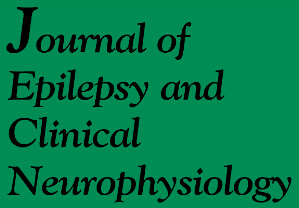INTRODUCTION: Mesial temporal lobe epilepsy (MTLE) is the most frequent form of partial epilepsy and has been considered a major medical and social problem as a result of its pharmacoresistence to conventional antiepileptic therapy. Hippocampal sclerosis is the leading cause of MTLE in surgical series and represents 50-70% of the cases. OBJECTIVES: To review the clinical aspects, histological findings, and the pathogenesis of the MTLE associated with the hippocampal sclerosis. RESULTS: The relation between hippocampal sclerosis and MTLE is well established in the literature, although the accurate mechanism through which hippocampal sclerosis is implicated in the genesis of the epileptic seizures is still not completely understood. CONCLUSIONS: Retrospective studies emphasize the association between hippocampal sclerosis and history of initial precipitating injury, such as epileptic seizures, occurring in early phase of the cerebral development. Recent evidences indicate that genetic factors may play a role in the genesis of hippocampal sclerosis.
mesial temporal lobe epilepsy; hippocampal sclerosis; physiopathogenesis; genetic; pathology
